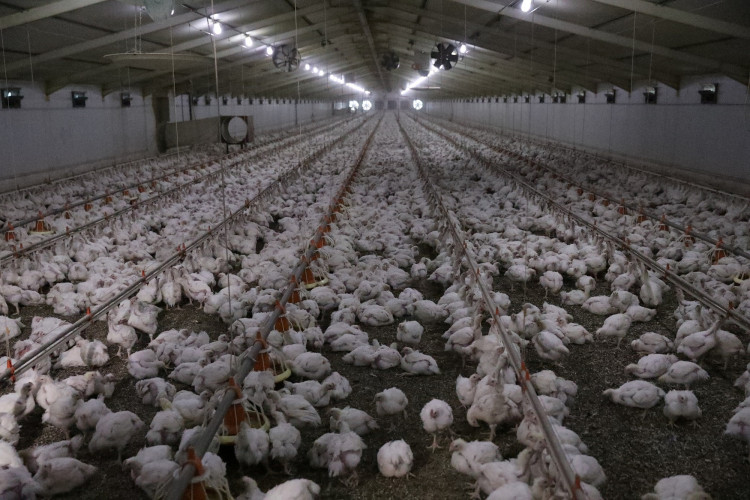Analysts are blaming COVID-19 pandemic for a shortage of chicken meat.
The biggest fast-food companies in America are reporting quarterly earnings and executives from Yum! Brands, Inc.'s KFC to Wingstop Restaurants Inc. have spoken of a desperate shortage of chicken.
This is primarily a result of a slowing in meat processing triggered by pandemic safety measures as well as an increase in demand for the latest offerings of popular fried chicken sandwiches, according to the executives.
Bad weather and power outages in large poultry producing states such as Texas and Arkansas have exacerbated the problem, the National Chicken Council said.
The pandemic forced poultry plants to reduce staff. Meanwhile, the need for comfort food increased as many Americans were forced to remain at home.
Chicken is selling "beyond expectations" at fast-food restaurants such as McDonald's Corp. Companies have also reported difficulties in hiring new employees with some company owners attributing this to increased unemployment benefits - which make it more appealing to stay on government assistance.
"Suppliers are struggling, just as many in our industry are, to hire people to process chicken - thus placing unexpected pressure on the number of birds that can be processed and negatively affecting supply of all parts of the chicken in the U.S., not just wings," Wingstop chief executive Charles Morrison has said.
Chicken is one of the most popular meats in the U.S., but demand has increased recently as numerous fast-food chains have introduced new fried chicken sandwiches.
Popeyes, which is owned by Restaurant Brands International Inc., started the chicken wars in 2019 with a $3.99 sandwich. They were sold out at many locations. This inspired other chains, including burger joints like McDonald's.
The increase in demand comes with heightened scrutiny of safety issues inside meat and poultry plants owing to the pandemic.
Many plants, especially in the Midwest, became COVID-19 hot spots, and lawsuits have claimed the industry exacerbated outbreaks. To prevent extreme shortages, the previous administration ordered plants to remain open even with the safety concerns.
An industry official in North Carolina told WSOC-TV demand would likely continue to rise as more restaurants reopen.





